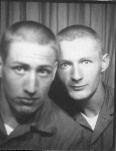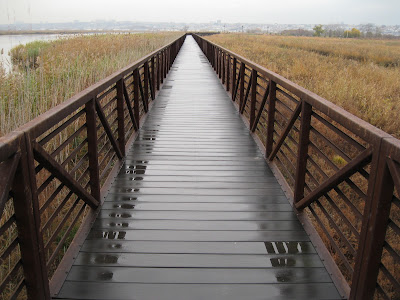Chapter 25: Phoenix, the first time
It was an unbearable heat that made everything warm to the touch, from door handles to picture windows. Whole store displays melted before my eyes; plastic soldiers slaughtered by the rays through the glass.
I had felt worse back east, where it grew not so hot, but much more unbearable, moist air thick with pollution that seemed lacking here. I imagined I could sleep here in this heat, where as I could not back east during its muggiest nights.
The suffering, of course, came later, with calamine lotion and prayers that the rays did not cause eventual skin cancer. I lit a cigarette and leaned against the warm wall of the building watching the other passengers exit the bus, each wearing the same expression of distaste after having been protected from the elements by tinted glass and air conditioning for most of the trip west.
I kept thinking how unlike November this was, and how in New York the snow would soon be falling, and how I should have been back in my attic room, staring out at the flakes, the street and the traffic light praying the snow would stick. Now, standing on the platform, I wondered if I'd ever see snow again.
When I couldn’t stand the scalding sun, I went inside where many of the other passengers were gorging on tacos.
I had no appetite; so, stared out the window again at the world outside, taking note of how flat and wide the streets were, and how many front lawns boasted orange trees the way homes back east boasted crab apples. Palm trees towered over the stucco houses, slate roofs glowing pink and grey in the sunlight.
A few people walked along the sidewalks, most wearing light colored clothing, short sleeve shirts and shorts. Some wore bathing suits, young women drawing sharp glances from older men. I saw no indians, and that disappointed me, too, though on the rack near the lunch counter, picture post cards showed many in full regalia, chiefs with heads full of feathers, staring out forlorn from their two-dimensional world, as if they already accepted their doom.
The bus station information racks were thick with brochures advertising Sun City, a retirement village just north of Phoenix, that immediately struck me as odd, as if this place had as little use for its old as it did for its Indian, condemning both to reservations, but of different kinds. Whereas the Indians were likely struggling to survive, seeking water from stones and food from sand, the white man's reservation would have swimming pools and pool side servants holding out rich bowls of fruit.
Perhaps the real indians were dying out beyond the edge of the city, hidden in some canyon by authorities who did not wish travelers like us to see them and sympathize with them, and help them gain their land back.
The tribes got even, I later learned, when they cashed in on the land Nixon returned to them, turning their sovereign nations into mini-Reno and Las Vegas, sucking up the social security checks of the white men they blamed for stealing their land, a fair swap, I imagine, not even requiring the senior citizens to circle their wagons.
"They say this town has some redeeming qualities," Bill told me when I finally made my way to the food counter and ordered myself a cup of coffee -- a ridiculous request in this heat that drew an odd look from the waitress. Later I learned, mostly only the bus drivers and truck drivers drank coffee and that only to keep awake over the long miles of road at night.
"It sounds like you don't like it?" I said.
"I don't," Bill grumbled, glancing towards the rest room door through his wife had vanished. "This place reminds me too much of Florida with all its retirement villages, like some kind of burial ground."
I started to laugh, but saw the man was serious, and scared, as if he feared getting trapped here now that he had finally managed to escape the snares of Florida's retirement, as if he knew that to stop was to die, and that places of this kind waited on his kind to cease their motion.
"I don't want to sit around in the sun tanning myself until I die," Bill said. "We visit our friends and our children to keep from growing roots. They mock us for our traveling. They tell us we've earned our place in the sun. But that's like telling us we earned the right to die, and each time I hear someone saying that to me, I want to get up and leave."
"Well, you're not putting down any roots here," I said. "We're just passing through."
Bill nodded and stared out the window that stood along the other side of the counter, as if those who had built the bus terminal could not get enough of sun, giving it as much access to the internal places as possible.
Again, I was struck by a variety of truths, all struggling to get my attention, billboards across the street advertising vodka and tequila, their huge white bottles nearly as tall as the palm trees. I glanced at the clock. I wanted the time hurry so we could climb back on the bus, so that the bus could drive out of this city of contradictions. I wanted to get to L.A. where I could hide myself and not have to think about what lay between New York City and me, the miles of dessert, the wall of mountains, the fences and the painted images of indians I could not see.
Apparently, Bill felt the same way, glancing at his watch so frequently, time had no chance to change between each examination.
"I keep thinking about how we're going to have to go back or settle down somewhere," he told me. "I know that age will eventually make it too hard for us to keep on climbing into buses or onto trains, and that we'll need so many doctors so often that we won't ever be able to take a trip longer than a day's jaunt away."
Then, finally, the driver reappeared, coming out of the men's room zipping his fly closed, and called for us to re-board the bus. Mrs. Warton appeared from the Ladies Room and crossed to where we sat.
"Well? Didn't you hear the man?" she asked her husband sharply. "You act like you want to stay here. Come on."



Comments
Post a Comment